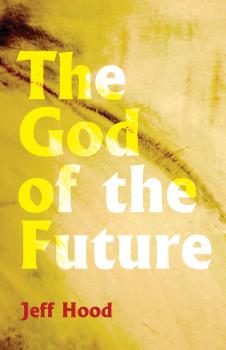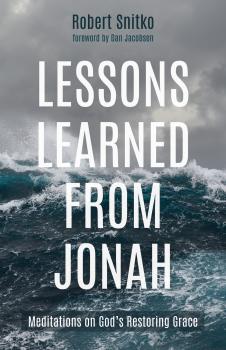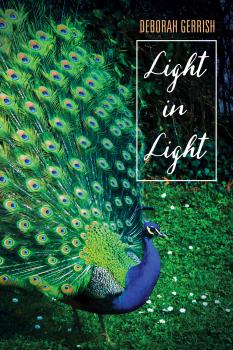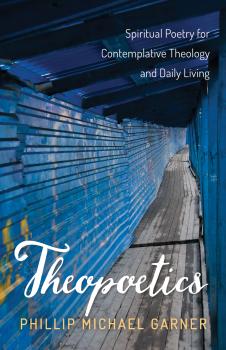ТОП просматриваемых книг сайта:
Религия: прочее
Различные книги в жанре Религия: прочее, доступные для чтения и скачиванияАннотация
Habitation of Wonder is an offering of poems that travels the intersection of the natural landscape and the landscape of spirit. Here, the moon is a «white comma / in the breath of space.» Crocuses are «ephemeral prophets, first of the sun's spring projects.» The ocean is «a vast / perpetual sacrifice on the altar / of the shell-glittering shore.» The collection opens with «Genesis,» a reimagining of the creation story with song as the divine instrument of creation. Five themed sections flow from «Genesis» like a musical thread, investigating the material elements from which we originate and in which we take shelter, as well as the gifts of language and faith, which make us more than merely «a constellation of salts.» In its own way, each poem invites the reader to «tenant beauty»–as well as to tenant uncertainty. When beauty and uncertainty collide, they spark wonder. As these poems suggest, wonder is simply another name for the world in which we live–and the world that lives in us.
Информация о книге
Автор произведения Abigail Carroll
Жанр Религия: прочее
Серия Poiema Poetry Series
Аннотация
The Gospel is said to be concealed in the Old Testament and revealed in the New Testament. Often it can feel concealed in both. Using an everyday approach to typology and literary analysis, Garrett Soucy takes the reader through the Scriptures in order to hear the Gospel from the most unlikely of candidates–rocks and stones.
Аннотация
Bazyn's poems seek to encourage Christians of all stripes to present a new song unto the Lord–by actual example and useful advice. All sorts of issues relating to creativity are touched upon, whether theological, psychological, sociological, philosophical, linguistic, or autobiographical.
Among the topics covered: finding your own voice; reading widely and deeply in the classics; being spare, concise in your style; discovering your genuine self beneath its assorted masks; taking occasional flights of fantasy; considering your mind as a house of memory; perfecting your art, even in a miniature way.
Celebrating your mentors–among the authors are Dickinson, Donne, and Hafez; reflecting on your past by looking at old photographs; drawing inspiration from home and family; not allowing overly critical editors to stifle your creativity; recognizing that the artistic life may be a lonely and perilous journey toward fulfillment; seeking after God's will in all that you do; never being afraid to head into deeper waters; acknowledging that we are, at best, half-converted souls.
Black-and-white photos by the author illumine the themes of these pieces. Also, there is a bibliography of recommended readings on creativity. Go, and find your voice; then let it rise up to the Lord night and day.
Among the topics covered: finding your own voice; reading widely and deeply in the classics; being spare, concise in your style; discovering your genuine self beneath its assorted masks; taking occasional flights of fantasy; considering your mind as a house of memory; perfecting your art, even in a miniature way.
Celebrating your mentors–among the authors are Dickinson, Donne, and Hafez; reflecting on your past by looking at old photographs; drawing inspiration from home and family; not allowing overly critical editors to stifle your creativity; recognizing that the artistic life may be a lonely and perilous journey toward fulfillment; seeking after God's will in all that you do; never being afraid to head into deeper waters; acknowledging that we are, at best, half-converted souls.
Black-and-white photos by the author illumine the themes of these pieces. Also, there is a bibliography of recommended readings on creativity. Go, and find your voice; then let it rise up to the Lord night and day.
Аннотация
The past doesn't exist. The present is a lie. The future is an illusion. Time. God. Being. Yesterday. Today. Tomorrow. God was. God wasn't. God is. God isn't. God will be. God will not be. The journey never changes. The future is inertia. Maybe it's not the first time we've experienced it all? Died. Dead. Dying. The incarnation of God grows stranger and stranger. These are the visions. Here in the past. Here in the present. Trinities of time call to us . . . from somewhere beyond. Dogs demand salvation. Robots reproduce. Pollution forces evacuation. Chaos rages. The end is near. A demise of God is here. Welcome to the future.
Аннотация
We live in a performance-driven world–a world that measures our status through results and accomplishments. The reality is that we shift this kind of thinking on God. We create a performance-driven God and fool ourselves into thinking that God's expectations must be achieved, or we are doomed. But the truth is that God is not a God who expects performance. Rather, He is a God of grace. He understands that we will fail, and that is why He redeems us in Christ.
In Lessons Learned from Jonah, Robert Snitko examines the grace that God offers to Jonah, regardless of his constant failure. The book of Jonah is filled with the exact imprint of who we are as fallen human beings, along with our sinful tendencies to run away from God in the moments when He calls us to obedience. Yet God, in His sovereignty, is seeking redemption and restoration with His people through the person and work of Jesus Christ. Join the journey of experiencing God's grace in this devotional through the narrative of Jonah.
In Lessons Learned from Jonah, Robert Snitko examines the grace that God offers to Jonah, regardless of his constant failure. The book of Jonah is filled with the exact imprint of who we are as fallen human beings, along with our sinful tendencies to run away from God in the moments when He calls us to obedience. Yet God, in His sovereignty, is seeking redemption and restoration with His people through the person and work of Jesus Christ. Join the journey of experiencing God's grace in this devotional through the narrative of Jonah.
Аннотация
Though we are all sorry sinners, not worthy to sing God's praises, we must. The trick is to not let concerns for «Christian stealth» transform us into poets who end up serving a second master. «Platform» has its draw, but we can't let a wide concern for Catholic culture become no culture at all. We can't be so concerned with success that our poems lose their distinguishing content. Jesus is Lord of all the earth. Using a conversational style lifted from Collins and Coleridge, these poems seek to bring a world to light where He has always been alive and active, where he reigns in complete power, worthy of all our praise. May He forgive us all our sins and change us in the twinkling of His eye before our journey ends.
Аннотация
Do we appreciate to the full why the Jewish believers of the early church «were amazed because the gift of the Holy Spirit was poured out even on Gentiles»? Why they were amazed that «God had granted repentance» to Gentiles for eternal life?
Sacred history is to be seen through enlightened Jewish eyes, revealing that Israel was initially the sole beneficiary of God's revelation before Christ. For the most part the Gentiles were «allowed . . . to walk in their own ways.» Such was according to divine predestination and the prerogative that God has the freedom to be merciful on whom he desires to be merciful. At the coming of Christ–to the surprise of Jewish believers–Gentiles in numbers became subjects of God's electing love as well. Jesus died for «the world» in the sense that he died for Jew and Gentile.
And God's freedom in predestination continues to be manifested in the election of both Jew and Gentile, with Christ dying specifically for all those elected of God, as a wide survey of New Testament texts verify.
Sacred history is to be seen through enlightened Jewish eyes, revealing that Israel was initially the sole beneficiary of God's revelation before Christ. For the most part the Gentiles were «allowed . . . to walk in their own ways.» Such was according to divine predestination and the prerogative that God has the freedom to be merciful on whom he desires to be merciful. At the coming of Christ–to the surprise of Jewish believers–Gentiles in numbers became subjects of God's electing love as well. Jesus died for «the world» in the sense that he died for Jew and Gentile.
And God's freedom in predestination continues to be manifested in the election of both Jew and Gentile, with Christ dying specifically for all those elected of God, as a wide survey of New Testament texts verify.
Аннотация
Light in Light paints a river of illumined images highlighting the author's compilation of experiences, emotions, and memories as not only being grist for the poems, but illustrating a living and breathing record of the poet's personal journey. Whether it is pondering the delights of childhood with its remembrances and long imagination, or later in life, being immersed in suffering, there is witnessing and validation. These conversational poems, chock-full with confessions of faith, are immersed in magic and music, rich imagery, and well-crafted design. The poet plunges into living out the ordinary through the extraordinary, by breathing in the secrets of the peony, the magnolia, the music of the dream. The poet waits for dawn, and for hope that liberates the soul through the natural world, with its transforming spiritual impact. This collection of poems is about health to the bones, the heart, the spirit, and it is through suffering and longing that the tattered soul is unlatched and liberated. As the poet scrutinizes the world, she sees with a creative eye. She scans her past and present with a wide lens, as a noticer of details and particulars, through the poetic expression of enlightening images and metaphors.
Аннотация
Theopoetics is a collection of poetry filled with reflective inspiration from the heart and mind of a person filled with pathos over the plight of humanity. Each poem reflects his personal wrestling with theology and reality as he is determined to bring God into the world with a synthesis of pathos, intellect, experience, and words. The aesthetic of poetry provides the author with an expressive outlet to imagine life within a genre where limitations give way to possibilities, in a world where the concretization of society prevails.
Theopoetics is an effort to communicate spirituality combined with theology into words; words that ignite the soul with hope and challenge. Each poem contains numerous theological insights born from years of teaching students both in the classroom and abroad. These efforts at educating have been in active pursuit of bringing tikkun olam, that is repairing the world, to oppressed persons and various communities of need.
The author is committed to the idea that theology must be practical with ready application for participating in salvation as both personal and historical. As a practitioner of nonviolence his calls for peace resonate throughout the book. Theopoetics is for persons seeking a spiritually challenging devotional experience.
Theopoetics is an effort to communicate spirituality combined with theology into words; words that ignite the soul with hope and challenge. Each poem contains numerous theological insights born from years of teaching students both in the classroom and abroad. These efforts at educating have been in active pursuit of bringing tikkun olam, that is repairing the world, to oppressed persons and various communities of need.
The author is committed to the idea that theology must be practical with ready application for participating in salvation as both personal and historical. As a practitioner of nonviolence his calls for peace resonate throughout the book. Theopoetics is for persons seeking a spiritually challenging devotional experience.










